Fritextsökning
Artiklar per år
Innehållstyper
-

Bioarctic granted Japanese patent for Parkinson’s disease candidate
Bioarctic has been granted a Japanese patent for its antibodies targeting Parkinson’s disease.
-
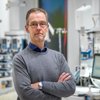
“Unfortunately, we are not strong when it comes to conducting clinical trials”
The number of company-initiated clinical trials conducted in Sweden has been declining in recent years. In mid-March, a government inquiry was presented that aimed to find answers and solutions to this downward trend. One of the proposals was a stable, sustainable and funded model for collaboration.
-

Första biosimilaren mot MS godkänd i USA
Den första biosimilaren för behandling av multipel skleros, MS, har godkänts av den amerikanska läkemedelsmyndigheten FDA.
-

Bioarctic får japanskt patent för Parkinsonkandidat
Bioarctic har beviljats ett japanskt patent för sina antikroppar inriktade på Parkinsons sjukdom.
-

Small robots to deliver pharmaceuticals to the body
Robots that can operate inside the body and a platform that combines ultrasound with AI. These are a couple of the technologies that have qualified for a list that aims to promote sustainable entrepreneurship.
-
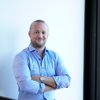
Life Science Sweden beger sig till Öresundsregionen! – Hallå där Michael Linnell
Snart är det dags för Life Science Swedens möten The Future of Swedish Danish Life Science och New Updates in Drug Formulation & Bioavailability. Vi ställde ett par snabba frågor till Michael Linnell, projektledare för Life Science Swedens eventportfölj.
-

Double up for Korbinian Löbmann
This year, Korbinian Löbmann will moderate the New Updates in Drug Formulation & Bioavailability meeting in Copenhagen for the fifth time. Furthermore, he will also moderate The Future of Swedish & Danish Life Science congress in Lund for the first time.
-

CROs in drug development: "We use our expertise to speed up the process
Consultancy firms have become an increasingly important part of drug development. “It’s a trend and a business model that works, and we see no indication that it will change,” says Helena Lüning of the industry organisation ASCRO.
-

Studie: Klent stöd för nyttan av många nya cancerläkemedel
Nya cancerläkemedel lanseras i strid ström, men sker det för fort? Enligt en studie från Göteborgs universitet saknas det i många fall vetenskapligt stöd för att läkemedlen verkligen har önskad långsiktig effekt – trots att flera år har gått efter att de introducerades.
-

A billion-dollar acquisition makes Novo Nordisk even bigger in obesity
Danish pharmaceutical giant Novo Nordisk acquires Montreal-based Inversago Pharma, which develops treatments for obesity and diabetes.
-
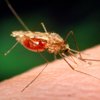
Bakterie som kan hejda malaria upptäckt av en slump
Forskare i Spanien har funnit en bakterieart som tycks ha malariadödande egenskaper.
-

Why the world renown researcher Marc Tessier-Lavigne resigns as Stanford´s president
In mid-summer, neuroscientist Marc Tessier-Lavigne announced his resignation as President of Stanford following allegations of manipulated study data. According to the reporter Theo Baker, who first reported the story, Tessier-Lavigne “rewarded the winners and punished the losers”. Here is the background of the story which has shaken the American scientific community over the summer.
-

Uppsala-based company wins important patent dispute – but the decision is subject to appeal
A US district court has ruled in favour of Orexo in a dispute over the patent protecting the Swedish company’s drug Zubsolv, developed for treating patients with opioid addiction. However, the opposing party, the Indian company Sun, is not giving up and has filed an appeal.
-

Studie: Extroverta mer benägna till vaccinskepsis
Utåtriktade personer borde ha bråttom att få komma ut och umgås igen under pandemin, och därför vara extra benägna att ta covid-vaccinet. Trodde forskarna. Men enligt deras studie var det precis tvärtom.
-
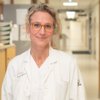
AI-stödd mammografi hittade fler cancerfall i studie
Screening med hjälp av AI hittade fler bröstcancerfall och minskade arbetsbördan kraftigt jämfört med sedvanlig röntgengranskning av två radiologer i en studie från Lunds universitet.
-
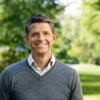
Xspray tar in 251 miljoner inför USA-lansering
Xspray Pharma tillförs 251 miljoner kronor genom en företrädesemission inför en planerad lansering av bolagets cancerläkemedel Dasynoc på den amerikanska marknaden.
-

Nytt centrum för avancerade terapiläkemedel vid Lunds universitet
Lunds universitet inrättar nu ett utvecklingscentrum för avancerade terapier (ATMP). Centrumet får namnet LU-ATMP och skapas i syfte att omvandla medicinsk forskning till terapier för patienter.
-

The Swedish Life Science Office: “We lost in both coordination and manpower”
Since the turn of the year, the Swedish government’s life science office has operated at a lower capacity. Life Science Sweden has spoken to Pontus Holm, Departmental Secretary at the office, about the ongoing work.
-

Ny medicinsk chef på Capitainer
Det svenska medicinteknikbolaget Capitainer har anställt Mathias Karlsson som Chief Medical Officer.
-
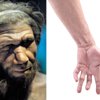
Neanderthal gene variants may cause Viking disease
A new study suggests that the so-called Viking disease, which affects the hand function in many older people, may be linked to gene variants inherited from Neanderthals.
-

Lucy Robertshaw: Artificial intelligence – is this really going to transform a patient’s life?
In a column Lucy Robertshaw reflects on how AI and new regulations will affect healthcare, innovation and the lives of future patients.
-

Gothenburg-based company acquired by Norwegian diagnostics group
Gentian Diagnostics acquires Gothenburg-based Getica.
-
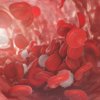
Certifiering tar Mendus cancerkandidat framåt: "Ökar värdet"
Immunterapibolaget Mendus har beviljats så kallad ATMP-certifiering av den europeiska läkemedelsmyndigheten EMA för sin ledande läkemedelskandidat vididencel.
-

Anna Törner: The minute between life and death
“I have never told anyone about this day that happened more than 20 years ago. But I sometimes reflect on what happened, on what might have happened. When I try to understand why I haven’t told anyone, I find the answer: a feeling of shame. There is no forgiveness for something like this, even though it is very human to be distracted for a moment,” Anna Törner writes in a column.